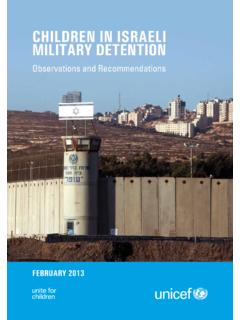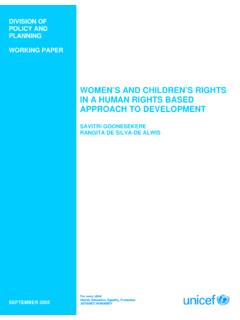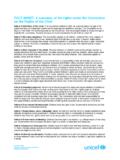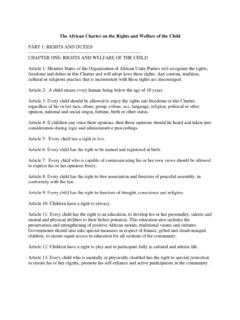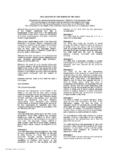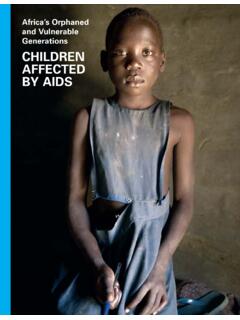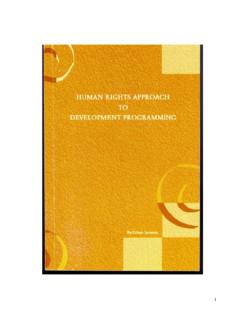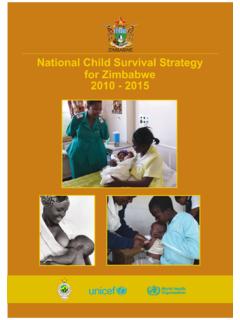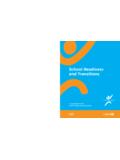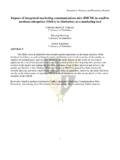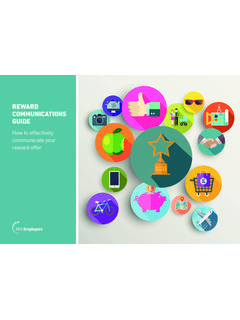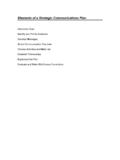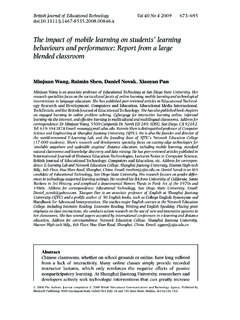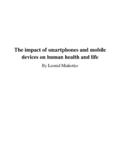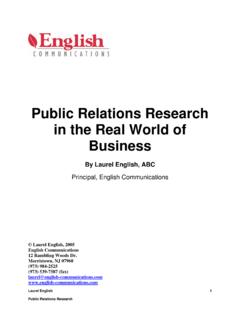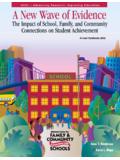Transcription of Drug Use & Impact of Children - Home page | UNICEF
1 FACT SHEET drug ABUSE & ITS Impact ON Children AND YOUNG PEOPLE Prepared by UNICEF Malaysia Communications Update: 20 May 2007 1 a) Impact on Children when a Family Member Abuses Drugs drug abuse by a family member will have a significant and enduring Impact on the family dynamics and functioning. Families encounter great stress, conflict and anxiety as a consequence of trying to protect the family member from the dangers and harms associated with drugs, and to limit the damage arising from their behaviour towards the rest of the family. A child s basic needs - diet and nutritional intake, health and schooling - may become neglected if a parent is more preoccupied with drugs. A child is at risk of emotional and physical neglect as they grow. These Children may periodically distance themselves from reality as a coping mechanism for the parent s drug abuse.
2 These Children also risk developing emotional and social problems later in life. A child could be the victim of violence both physical and mental from a family member who is abusing drugs. A child may lose out on childhood to adopt adult responsibilities having to provide both practical and emotional care for their parents who abuse drugs. This includes protecting their parents from harm. A child may become the parent if both parents are abusing drugs and unable to fulfill parenting roles and obligations. Older siblings may be expected to look after their younger brothers and sisters to ensure they continue to go to school, to keep the home in order. A child may be forced to lie, with family life being kept a secret to protect the parent or sibling who is abusing drugs. A child faces a mix of anger, sadness, anxiety, shame, social isolation and loss as parents, brothers and sisters struggle with drug addiction.
3 A child may have a sense of being impotent to alter the course of the drug problem in the family. A child may develop drug problems as a result of being exposed to drug culture in the family. FACT SHEET drug ABUSE & ITS Impact ON Children AND YOUNG PEOPLE Prepared by UNICEF Malaysia Communications Update: 20 May 2007 2 b) Impact on Children when a drug User Parent becomes HIV-positive Included in today s equation of drug use, is also the risk of HIV infection. The main reported mode for HIV transmission in Malaysia is through injecting drug use. Children suffer profoundly when a parent who injects drugs gets infected with HIV: A child suffers extreme psychosocial distress when a parent falls ill and dies. This is worsened by the pervasive stigma and shame attached to HIV/AIDS.
4 A child is forced to endure economic hardship when a parent is too ill to work. In some cases, a child takes on adult responsibility of supporting the family. A child may withdraw from school due to the pressures of earning for and caring for sick parents and siblings. The pressures to abandon schooling intensify when one or both parents die. A child who is orphaned is more likely to be malnourished or to fall ill and less likely to get the medical care they need. A child who is orphaned by AIDS is regularly cheated out of their inheritance. Dispossessed orphans are often forced out to unfamiliar and hostile places. Impoverished and without parents to educate and protect them, orphans and affected Children face every kind of abuse and risk, including HIV infection. Many are forced into exploitative and dangerous work including exchanging sex for money, food, protection or shelter.
5
